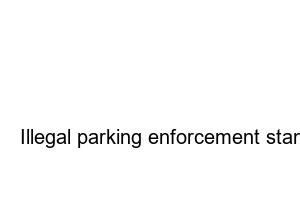불법주정차 단속 기준
Title: Illegal Parking Enforcement Standards: Understanding the Process
Introduction:
Illegal parking is an issue that affects many cities and towns worldwide, leading to congested streets, safety hazards, and inconvenience for everyone involved. To address this problem, proper parking enforcement standards must be in place. In this blog post, we will delve into the key aspects of illegal parking enforcement, highlighting the standards and procedures followed to ensure fair and effective enforcement.
1. Why are Illegal Parking Enforcement Standards Necessary?
Illegal parking enforcement standards play a crucial role in maintaining order on the roads and ensuring the safe and efficient movement of vehicles and pedestrians. These standards guide law enforcement officers in determining violations, issuing citations, and applying appropriate penalties. They serve as a foundation for maintaining the integrity and consistency of the parking enforcement process.
2. Types of Illegal Parking Violations and Their Consequences:
Whether it’s parking in a no-parking zone, blocking fire hydrants, or occupying spaces designated for disabled individuals, different types of illegal parking violations have varying consequences. Penalties can range from monetary fines to vehicle towing and even license suspension in severe cases. These consequences serve as a deterrent, encouraging motorists to follow parking regulations.
3. The Role of Technology in Parking Enforcement:
Technology has revolutionized the parking enforcement process. From electronic ticketing systems to license plate recognition cameras, advanced technologies make the identification and documentation of parking violations more efficient. These tools enable officers to issue tickets quickly and accurately, reducing potential disputes or challenges.
4. The Importance of Consistency in Enforcement:
To ensure fairness and transparency, consistent enforcement of illegal parking regulations is essential. Officers must treat all violators equally, regardless of the time, location, or personal circumstances involved. This consistency helps build public trust, as motorists perceive the enforcement system as impartial and unbiased.
5. Disputed Citations and the Appeal Process:
Sometimes, individuals may believe they have received a parking citation unjustly. In such cases, a fair and accessible appeal process is necessary. Depending on the jurisdiction, motorists usually have the option to contest the citation by providing evidence and supporting documentation within a specified period. If the appeal is successful, the citation may be dismissed, revised, or reduced.
6. Collaboration with Community:
A successful illegal parking enforcement system requires collaboration between law enforcement agencies and the local community. Public awareness campaigns, educational initiatives, and clear signage are all part of a comprehensive approach that aims to prevent violations and promote compliance with parking regulations.
FAQs:
1. What are the most common illegal parking violations?
2. How can I contest a parking citation?
3. Can parking enforcement officers issue tickets across jurisdictional boundaries?
4. Are there exceptions for emergency vehicles or certain circumstances?
5. How can I report repeated illegal parking violations in my neighborhood?
6. What can I do if my car has been wrongfully towed due to illegal parking accusations?
Summary:
Illegal parking enforcement standards are crucial for maintaining order, ensuring road safety, and preventing congestion. Consistent enforcement, supported by technology, provides an efficient and fair process. Collaborative efforts between law enforcement and the community contribute to the success of these standards. It is vital for motorists to understand their responsibilities and for authorities to address disputed citations promptly and transparently, promoting adherence to parking regulations and facilitating efficient traffic flow.

